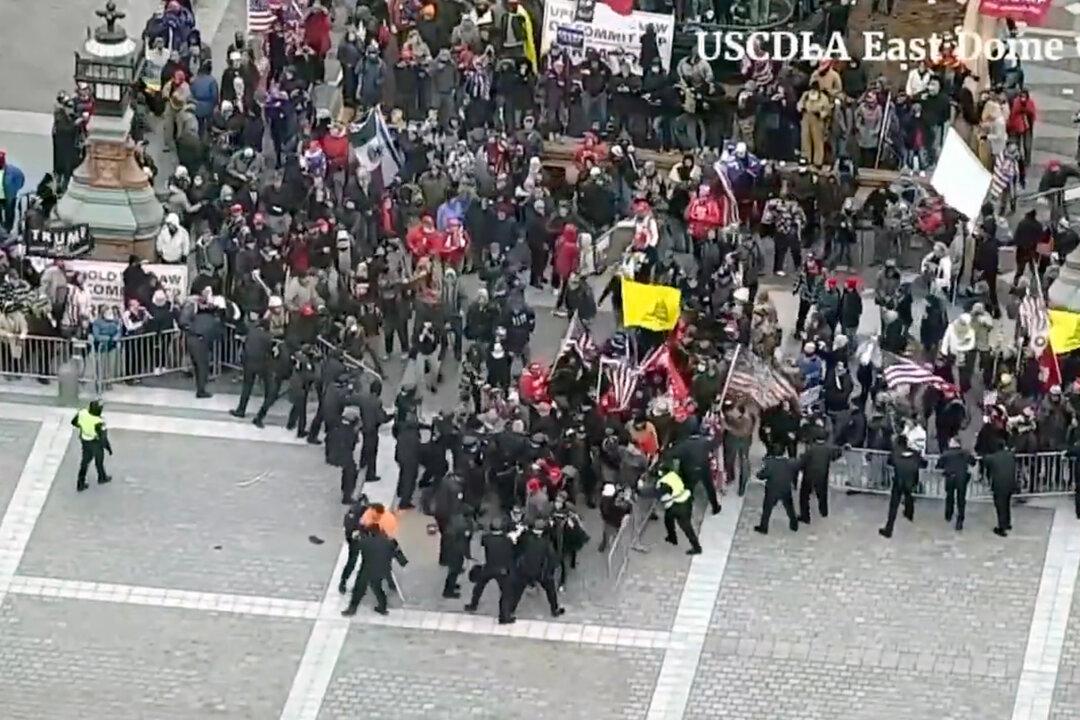The U.S. Department of Justice has withheld thousands of hours of video recorded at the U.S. Capitol on Jan. 6, 2021, from January 6 criminal defendants, and U.S. Capitol Police might have held back more than 1,300 hours of security video from a congressional oversight committee, a new federal court filing alleges.
Defendant William Pope contends in an update to a previous court filing that he and others charged with crimes at the Capitol that day need access to what should be more than 152,000 hours of video. That is if Capitol Police preserved it all.





